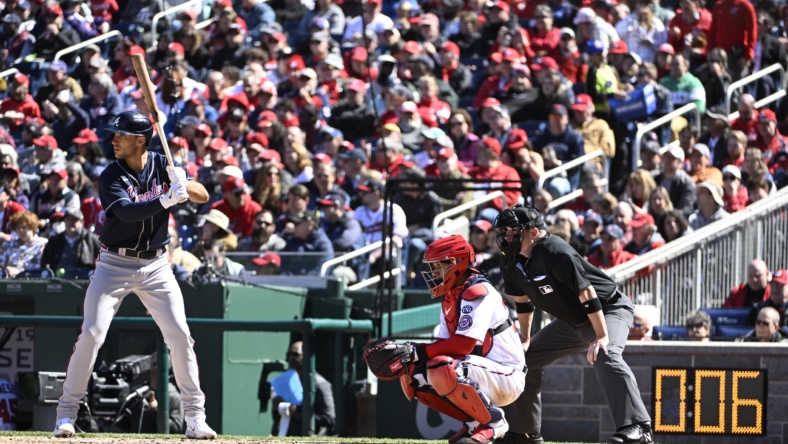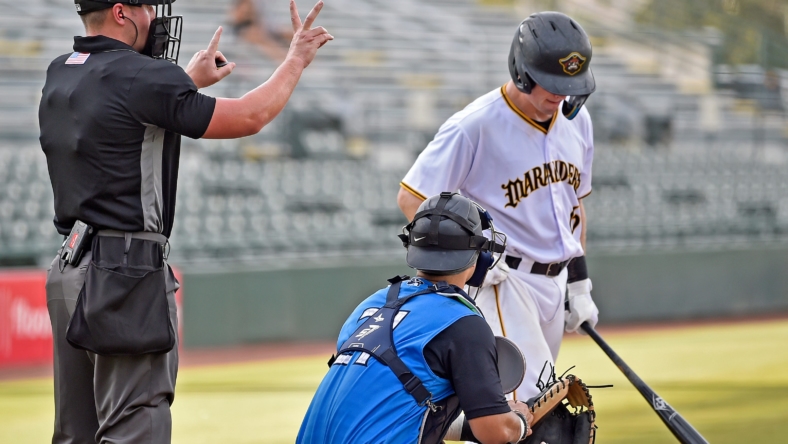One week of the MLB regular season has been booked. So what have we learned?
For one thing, Washington, Kansas City, and Oakland stink. Again. All three sank toward the bottom of their respective divisions despite playing all their games at home in the first week.
The Philadelphia Phillies, defending National League champions, lost five of their first six games, all interleague and all away from home. But let’s remember the Phillies never really contended for anything last year until they scraped into the National League playoffs as a wild-card team and upset St. Louis before pounding Atlanta and San Diego.
Then there is the Tampa Bay Rays, winner of all six games against Detroit and Washington. You scratch your head when you read the box scores and the Rays always run out somebody you’ve not heard much about. But the Rays’ way works. One baseball man calls the Rays’ generally successful bullpen “the island of misfit toys.”
Related: MLB games today – MLB schedule, TV info, scores, and key dates
How the pitch clock is changing MLB games

What we learned the most, though, was that this pitch-clock thing really works. MLB games are 25 to 30 minutes shorter and, even if they’re bad games, they’re over pretty quickly.
Atlanta manager Brian Snitker, who is 67 years old and has either been managing or coaching in the Braves’ system since 1982, says the pitch clock is the biggest, most significant change he has seen in those four-plus decades.
Asked if he were surprised it had worked so well, so fast, Snitker said, “Honestly, no. When I came up and took this (Braves’) job over, we had it in Triple-A.”
The pitch clock was introduced into Class AAA and AA in 2015 and Snitker became manager of the Braves the next year. “We had it in Triple-A and I saw it work,” he said this week.
“They had all the managers on a Zoom call when they were in the infancy stages about bringing it to the major leagues and I said, ‘Boys, I’ve experienced it and it works.’ It worked in spring training and it’s going to work here.”
Snitker doesn’t like some of the other new legislation on pitchers throwing to first. “That is part of the game,” he said. “Controlling the running game, that should still be part of the game. A lefty like (Atlanta’s) Max Fried, who has a move to first that’s a weapon is not going to be able to use it anymore.”
A shift in new MLB rules could continue

But one of the new MLB rules Snitker likes is the abandoning of shifts in the infield.
“The single is back,” said Snitker.
Atlanta first baseman Matt Olson, a lefthanded, pull hitter who often had a second baseman playing him in the outfield, singled in his first spring at-bat on a grounder to right — where nobody was playing — and told Snitker, “This is awesome already.”
Related: MLB predictions 2023
There are downsides with any new rule and the inherent one in the pitch clock, especially when it starts at 15 seconds with nobody on base, doesn’t leave much room for the time-honored intrigue of a pitcher shaking off his catcher’s sign whether he really wants a different pitch or if he is just playing with the hitter.
“Now, sometimes, the pitchers are calling their own pitches (with PitchCom) and I haven’t seen the catchers shake off any pitchers yet,” said Snitker.
The alternative is for the catcher to call time if there is a disagreement about a pitch, even to the point of using a mound visit.
“We never use all (five) mound visits,” said Snitker, “so this is kind of a fail-safe.”
The changes aren’t finished for this year although they won’t begin in the majors. Soon to begin will be the automatic ball-strike system in Class AAA. Mid-week games will be handled electronically, with the home-plate umpire announcing the call as given him by the technology.
On weekend games, balls and strikes will be handled, initially, by the home-plate umpire, but each team is allowed three challenges with the verdict then going to the ABS.
Now . . . I’m not quite sure I’m ready for that one.
Rick Hummel, who was inducted into the National Baseball Hall of Fame for baseball writing, is the baseball columnist for Sportsnaut.
